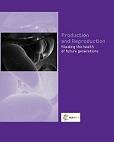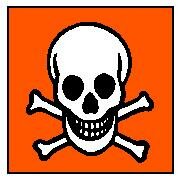|
|
|

The European Trade Union Confederation (ETUC) and the European Trade Union Institute (ETUI) are holding a conference entitled "Participation by workers and workers’ reps: key to successful risk assessment" on 26 and 27 January 2009.
The conference aims to share experiences on participatory assessment practices for workplace hazards in Europe.
|
|
[]
|
| |
|
|
|

A working group report handed in on 3 July 2007 to the Commission’s DG Enterprise endorsed a continued derogation that allows European industry to keep on using asbestos. A 1999 Directive which outlawed asbestos use in the EU granted a derogation for installations that use electrolysis cells. This is an industrial process involving asbestos diaphragms, used mainly by the chlor-alkali industry. When the Directive was adopted, it was agreed that the derogation would end on 1 January 2008.
|
|
[]
|
| |
|
|
|

Workplaces are notable by their absence from both national and EU cancer prevention policies. So the latest issue of the HESA Newsletter features schemes to intensify the public spotlight on the work-related origins of some types of cancer. Engaged workers from the research, trade union and voluntary communities in France, Scotland and Italy are pooling their skills to break the wall of silence surrounding work-related cancers.
|
|
[]
|
| |
|
|
|

This new brochure reviews scientific knowledge on the reprotoxicity of an array of chemicals found in workplaces. Recent studies offer persuasive evidence that occupational exposure to chemicals has a major impact not only on the different aspects of men and women’s reproductive life but also on their children’s health. The prevention policies and legislation brought in by the EU in face of this growing body of evidence are just not fit for purpose.
|
|
[]
|
| |
|
|
|

The European Trade Union Confederation has criticized the European Commission’s U-turn on substances that are toxic for reproduction (reprotoxins). They should have been brought into the Directive that protects workers from carcinogens and mutagens, which is currently up for revision. The Commission has suddenly changed tack and is not now proposing to include them.
|
|
[]
|
| |
|
|
|

The European trade union network on standardization coordinated by the ETUI held its annual meeting in Valencia (Spain) on 29-30 September, when trade unionists and experts from national and European standardization bodies discussed the situation in the construction industry. The participants worked back from a case study of a fatal accident caused by lifting equipment to reconstruct how it happened and identify the specific causes.
|
|
[]
|
| |
|
|
|

The ETUC is calling for a blanket ban on paint strippers that contain dichloromethane, a member of the chlorinated solvent group of chemicals that is responsible for a large number of deaths and accidents between 1989 and 2007. These paint removers are on open sale not just to building industry professionals, but also to ordinary shoppers on DIY store shelves. The European Parliament's (EP) Environment Committee is shortly to give its opinion on the Commission proposal to restrict their sale and use.
|
|
[]
|
| |

